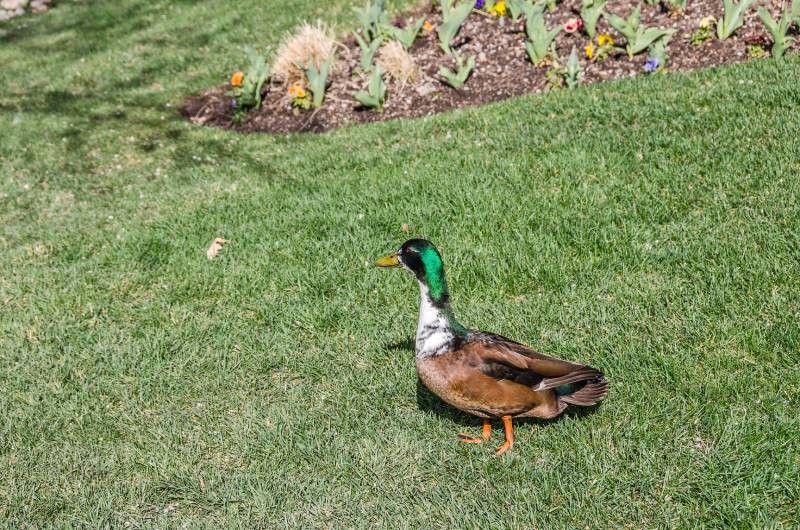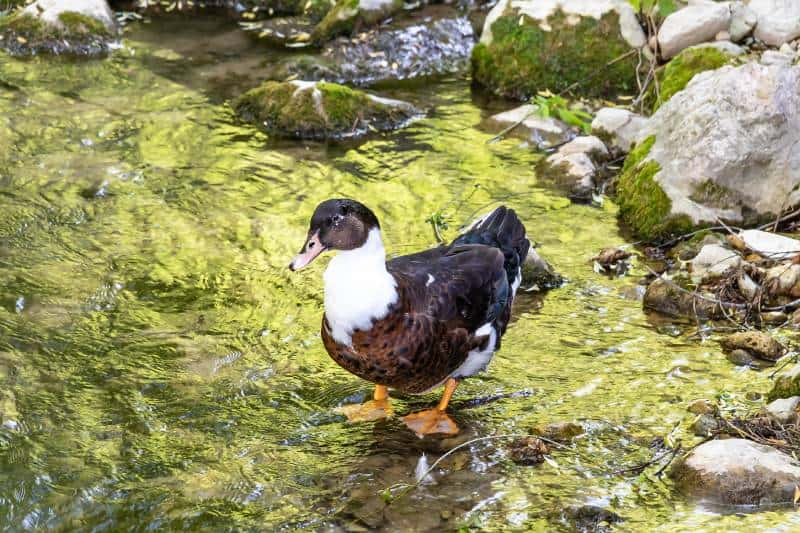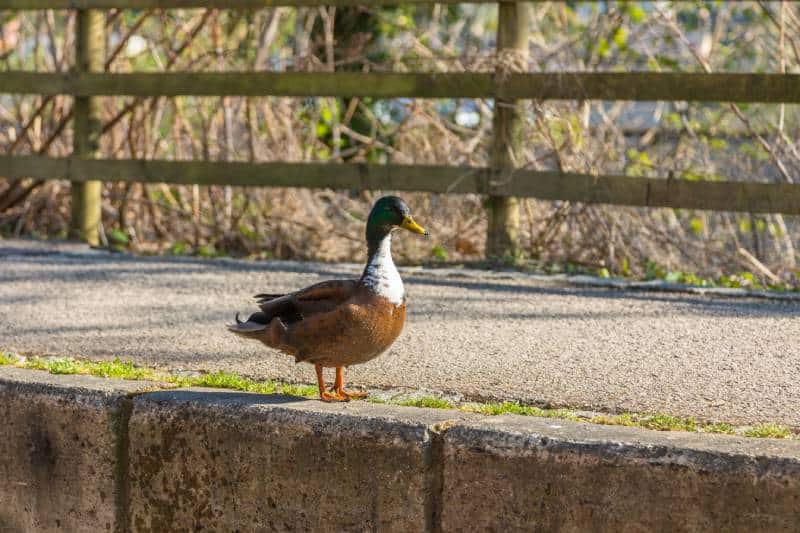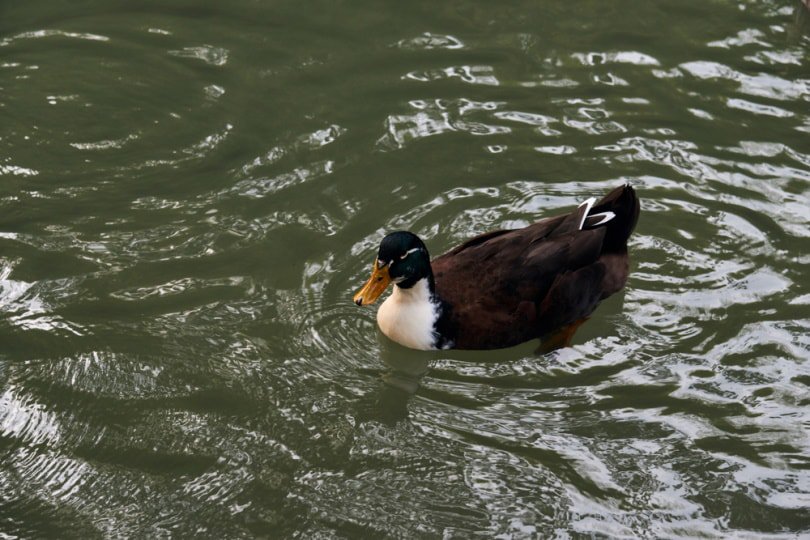Duclair Ducks are among the best ducks to keep, especially if you’ve never raised ducks before. These birds are dual-purpose ducks and are highly sought after by fine restaurants for their notoriously rich, earthy-tasting meat.
The Duclair Duck is also a great companion if you’re not interested in farming. Let’s look at some quick facts about this duck breed and whether it is right for you.

Quick Facts About Duclair Ducks

| Breed Name: | Duclair |
| Other Names: | Duclair Enten (German) and Canard Duclair (French) |
| Place of Origin: | France |
| Uses: | Meat and eggs |
| Drakes (Male) Size: | 6 – 7 pounds |
| Ducks (Female) Size: | 5 – 6 pounds |
| Color: | Black, brown, and green or white with orange bills |
| Lifespan: | 12 years |
| Climate Tolerance: | Tolerates most climates |
| Care Level: | Easy |
| Production: | 80 – 100 eggs per year (black and blue variety); 130 – 200 eggs per year (white variety) |
| Egg Color: | Blue or green |
| Egg Size: | Large |
| Rarity: | Least concern |
Duclair Origin
The Duclair Duck originated in Normandy, France, and was native to the region for about two centuries. The name comes from the City of Duclair, Normandy.
How this breed came to be is up for discussion. It’s thought the Duclair Duck came from migrating birds breeding with local domesticated birds, but the origin isn’t clear. Despite this, the breed made its way into many chef’s kitchens worldwide. Many believe Metzer Farms in New York City perfected the breed with the help of Stone Church Farms.

Duclair Characteristics
The Duclair Duck is a friendly, non-aggressive breed that’s great for first-time duck owners. These ducks are hardy and able to survive any kind of climate. Duclair Ducks are terrible flyers, so you still need to offer some protection from predators.
Duclairs eat diverse foods on land and in water, making them excellent foragers and hunters. They have a large appetite for slugs and snails and will happily feast on all of them that they can find. These ducks are omnivores and love eating various aquatic plants, seeds, grains, insects, crustaceans, and grubs.
Duclair Ducks ground feed and dabble in shallow water. Like many other duck breeds, the Duclair has a third eyelid that protects their vision and helps them see underwater and catch food easily.
This breed is sociable and enjoys a chat every now and then. However, they’re not noisy enough to bother your neighbor. With all this combined, the Duclair Duck is great for backyard flocks. And yes, one will happily be your pet duck!

Uses
Gourmet chefs consider the Duclair the best-flavored duck. French chefs Daniel Boulud and Alain Ducasse describe the meat as “a cross between veal and lamb.”
The best part? This breed develops quickly and reaches its mature weight in about 7–12 weeks. They’re table-ready by about 8 weeks old as a main course dish.
Duclair Ducks are a dual-purpose breed, so you can enjoy their eggs as well as their meat. Ducks start to lay eggs around 20–30 weeks old. The eggs hatch within 26–28 days.
Ultimately, this breed has a large egg production, and the meat is so good that it’s considered a delicacy.
Appearance & Varieties
If you’ve done any other research on the Duclair Duck, you may have noticed a couple of color varieties. The main type is black and brown with a white bib and a green head. The other variety is all white with a bright orange bill.
Both varieties are medium-sized and stocky with strong legs. Drakes are slightly larger than the ducks by 1–2 pounds and have larger and rounder heads.
The black and brown variety is the original color of the Duclair Duck. The color change was a man-made decision when consumers were put off by the black feathers causing dark spots on the skin after plucking. Breeders started crossbreeding the Duclair with the Pekin breed to produce a better-looking table bird.

Population and Habitat
In the wild, Duclair Ducks live near an open country with shallow wetlands and tall grasses to protect their nests. However, most of these birds are domesticated. You’ll find many of them living near ponds and farmlands.
Thankfully, this breed isn’t near endangerment. They’re actually found on every continent except Antarctica. However, you still won’t find many in their native region since this breed lost popularity in Europe.

Are Duclair Ducks Good for Small-Scale Farming?
Duclair Ducks are excellent for small-scale farming. These ducks are superb foragers and will adapt to any climate. If you’re a first-time duck owner, you won’t have to worry too much about food supply or making arrangements for harsh environments.
This doesn’t mean you won’t have to take care of them. It just means the breed is very forgiving should you make a mistake now and then. Consider the Duclair Duck for your small farm. We’re willing to bet that they’ll thrive no matter where you live. Unless, of course, you live in Antarctica.
Featured Image Credit: Smyshliaeva Oksana, Shutterstock
